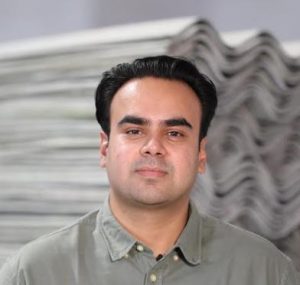Gujarat-based plastic waste recycling company Ricron Panels has raised a Series A round led by Boon Sustainable Technologies. The round also saw participation from Harsh Mohunta, Managing Director of Classic Display Systems, Dinesh Babbar, Ex President at Infra.Market, Boutique investment bank Veromint Advisors, Venkatesh Srinivasan, Ex Partner EY GDS, Renuka Sharma, Architecht and Kaushik Rajan, founder of Stoicus Legal. Veromint Advisors acted as the sole financial advisor and Kaushik Rajan, founder at Stoicus Legal, was the legal advisor for Ricron Panels for this transaction.
Ricron Panels, a sustainability startup, is a pioneer of converting low-value multi-layer plastic (MLP) into high-quality, carbon-negative, and eco-friendly building materials using its patented technology. The end applications include furniture, housing, roofing, construction, offering a viable and sustainable alternative to traditional materials. Ricron’s panels provide a high-utility, cost-effective substitute for plywood, metal, and cement roofing, presenting a green building solution for both emerging and developed markets.
Recognized globally for its environmental contributions, Ricron has earned numerous accolades, including the Climate Solver Award for Innovation in Technology 2019 by WWF.
Founded by visionary entrepreneurs Rahul Chaudhary and Radhika Chaudhary, Ricron’s patented technology transforms non-recyclable plastic waste into versatile, waterproof, rust-proof, fire-retardant, heat-resistant, termite-proof, and impact-resistant building materials. These products, including roofing, framework shuttering, doors, panels, and storage pallets, not only offer superior nail and screw holding strength compared to traditional plywood and MDF but also come at a cost-effective price point.
The company recycles 5,000 tonnes of plastic annually, preventing one ton of deforestation, avoiding the emission of 4.01 tons of CO2, and saving 21,000 MJ of energy for every ton of Ricron produced. Additionally, Ricron was the first company in India to generate an Extended producer responsibility (EPR) credit.
The funds raised in the current round will be utilized to bolster marketing and distribution efforts to expand Ricron’s presence in the Indian market, further amplifying its environmental and economic impact.

Rahul Chaudhary, Director and Co- Founder, Ricron Panel, says, “Waste management is emerging as a major concern across the nations worldwide as we continue to develop and urbanize. India is one such country which is constantly developing along with its growing population and consumerism causing rapid increase in plastic intake. To mitigate this formidable plastic wastage, Ricron was established to back waste management and offer a promising solution. With our state of art technology, today we are manufacturing responsible building materials by recycling 5000 tons of plastic per year and in the next 2 years, we plan to recycle 24000 tons per year.”
Speaking on the investment, Bharat Jaisinghani, Boon Sustainability, says, “Over the years plastic usage across sectors has been on rise and so has been the after-usage waste which is not only exhausting the dumping space but also causing environmental hazards. Ricron with its innovative technology enables waste plastic to convert into sustainable products. At Boon Sustainability, we aim to extend strategic support to Ricron and scale this sustainable business worldwide.”
Ricron’s manufacturing plant is currently present in Ankleshwar and Bhopal, the company aims to expand in at least 4 more locations across India within the next 5 years. The company has marquee customers like L&T, Tata Projects, DLF, Maruti Suzuki, RMZ, SLEEK bt Asian Paints, Decathlon, Nestle and more.
Across India’s many towns and cities, which are often ranked among the world’s most polluted, the absence of an organized management of plastic waste leads to widespread littering and pollution. The UNDP programme, which began in 2018, has so far collected 83,000 metric tonnes of plastic waste. India generates about 3.4 million tonnes of plastic waste annually.